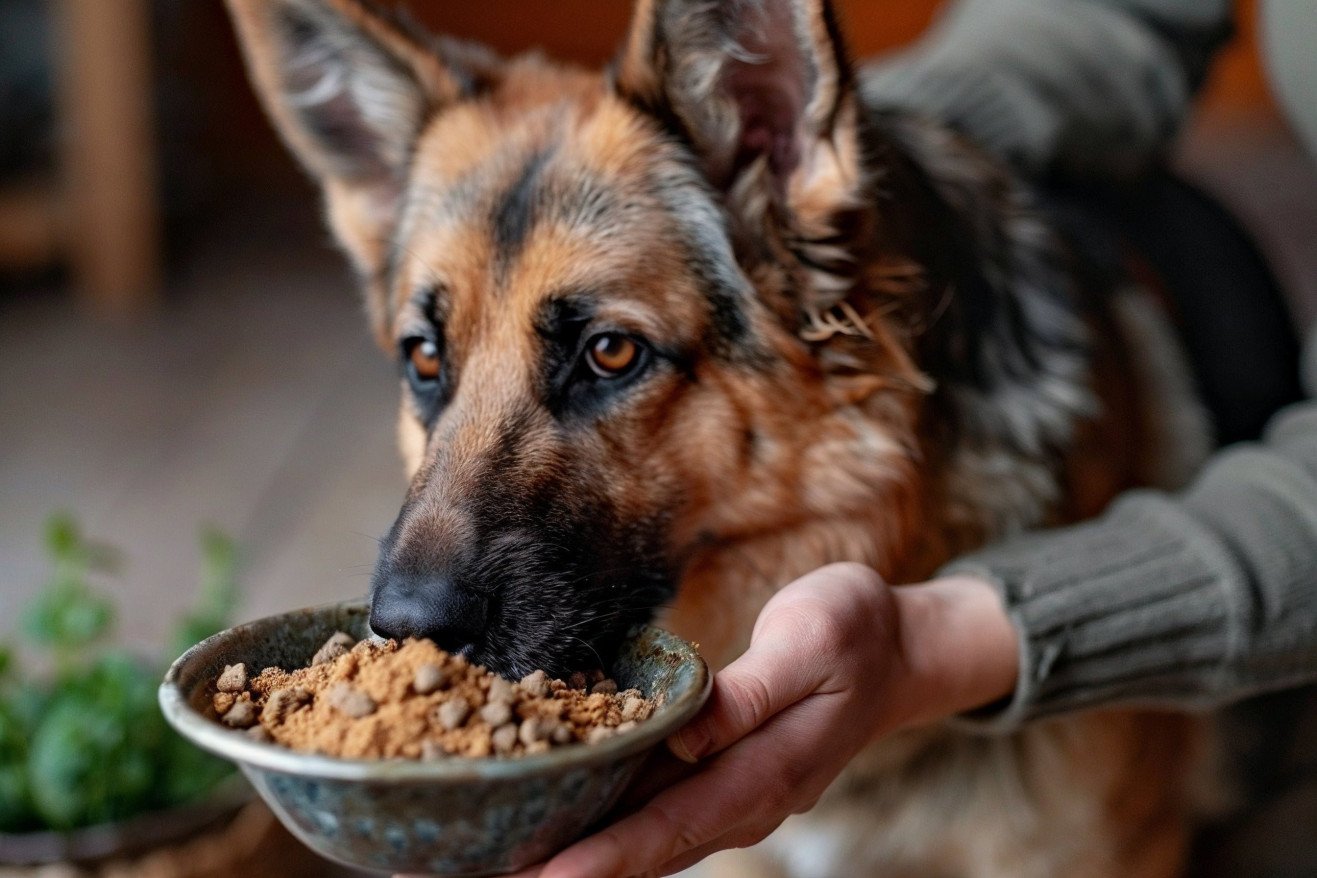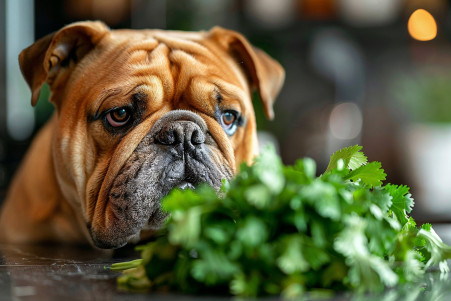Can Dogs Eat Cumin? A Look at the Risks and Benefits
24 March 2024 • Updated 23 March 2024

If you're a dog owner, you may have asked yourself if you can share your food with your furry friend, including spices like cumin. The answer depends on a number of factors, including your dog's specific dietary needs and the potential risks and benefits of cumin. In general, cumin is safe for dogs to eat, but it should be given to them in moderation and never as a substitute for a well-balanced diet.
Cumin also has some nutritional value, but it can lead to digestive issues in dogs if they consume too much. As always, when giving your dog a new food, start with a small amount and monitor them for any negative side effects.
This article will take a deep dive into the most recent veterinary and nutritional research to help you better understand how cumin may or may not impact your dog's health. Topics we'll cover include cumin's nutritional content, potential health benefits, and when you should and shouldn't consider giving your dog cumin. Armed with this information, you can decide whether or not to add cumin to your dog's diet.
Can dogs eat cumin?
Potential Risks and Side Effects of Overconsumption
While cumin can be helpful to dogs in small amounts, overconsumption can lead to some pretty serious problems. As noted by PetDogPlanet, overfeeding cumin to dogs can cause an upset stomach, gastrointestinal issues, and general discomfort. In more extreme cases, CanDogsEat.com explains that high doses of cumin can lead to toxicity, which can cause symptoms like hallucinations, increased heart rate, and liver damage.
Dogs with existing health conditions or sensitivities should not be fed cumin. As pointed out by FidoseOfReality, dogs with sensitive stomachs, food allergies, or who are on certain medications like blood thinners are more likely to have a bad reaction and should not consume cumin without a vet's approval. Signs that a dog has consumed too much cumin can include vomiting, diarrhea, lethargy, and general digestive upset, according to CanDogsEatIt.
If you notice any of these symptoms after giving your dog cumin, it's important to stop giving it to them and call your vet for advice. Make sure to use cumin in moderation and if in doubt, avoid giving it to your dog to prevent the potential risks of overconsumption.
Cumin Allergies in Dogs: Signs and Symptoms
Dogs, like people, can have food allergies, and that includes allergies to spices like cumin. According to Anicira, common signs of a food allergy in dogs include itchy skin, hives, digestive issues, swollen face, and chronic infections. The Veterinary Emergency Group notes that symptoms of an allergic reaction can be as mild as skin redness and irritation or as severe as vomiting, difficulty breathing, and collapse.
If a dog has digestive issues or skin problems after eating cumin, this could be a sign of an allergic reaction. As mentioned by Animal Emergency Service, it's important to see a vet right away if you notice any signs of an allergic reaction after introducing cumin. This is because it's important to get medical help as soon as possible, especially since severe allergic reactions can be fatal.
The best way to find out if a dog has a sensitivity or allergy to cumin is to introduce it to their diet slowly and keep an eye out for any negative reactions. If done with the right care and under the guidance of a vet, dogs without allergies may be able to eat cumin.
How to Add Cumin to Your Dog's Diet
For dogs that are not allergic or sensitive to cumin, small amounts of the spice can be added to homemade dog food or treats. As noted by Spoiled Hounds, the maximum recommended daily amount is approximately 1 teaspoon for larger dogs and 1/4 teaspoon for smaller dogs. Cooked or baked cumin is generally easier for dogs to digest than raw cumin seeds.
It's important to introduce cumin to your dog's diet slowly, starting with a small amount and watching for any signs of intolerance or sensitivity before increasing the dose. As mentioned by Hepper, it's best to talk to your vet before adding cumin to your dog's diet, especially if your dog has any underlying health issues. It's important to use cumin in moderation and with care when adding it to your dog's diet.
Although cumin may have some benefits, it's important to make sure that your dog can eat it without experiencing any negative side effects. With the right amount and the help of your vet, cumin can be a healthy addition to some dogs' diets.
Can Cumin Help Dogs?
Despite the potential risks of overconsumption, cumin may have some health benefits for dogs when used in moderation as part of a healthy diet. According to Spoiled Hounds, cumin is full of antioxidants and can help improve the immune system and support weight loss. Moreover, some studies have shown that cumin has anti-inflammatory effects and may help with digestive problems, as noted by Hepper.
That said, the research on these benefits in dogs is limited and more studies are needed. As with any supplement or dietary change, it's important to talk to a vet before using cumin to address a specific health concern or to help manage an existing condition. It's also important to remember that, while the potential benefits may be enticing, cumin should be used in moderation and with caution when adding it to a dog's diet.
Use Cumin in Moderation and With Caution
The potential side effects and risks of dogs eating cumin are primarily related to overconsumption and include digestive issues, allergic reactions, and potential toxicity. As explained by PetDogPlanet, overconsumption of cumin can lead to digestive problems, such as gas, bloating, and diarrhea. In addition, some dogs may have a sensitivity or allergy to cumin, which can cause symptoms such as itching, hives, swelling, and difficulty breathing. In the most extreme cases, CanDogsEat.com explains that consuming large amounts of cumin can lead to toxicity, which can cause symptoms such as hallucinations, tachycardia (rapid heart rate), and liver failure.
The recommended dosage is no more than 1 teaspoon for large dogs and 1/4 teaspoon for small dogs, according to Spoiled Hounds and Hepper. It's important to start with a very small amount when adding cumin to your dog's diet and to watch for any adverse reactions. It's also important to consult with a veterinarian, especially if your dog has any underlying health issues or sensitivities, to make sure it's safe to give your dog cumin.
Final Considerations: Weighing Cumin's Risks and Benefits for Dogs
While cumin can be added to a dog's diet in small amounts without causing harm, it's important to use it in moderation and with caution. Overconsumption can lead to digestive issues, allergic reactions, and even toxicity. Dogs with underlying health issues or sensitivities may be best off avoiding cumin altogether.
If you do decide to give your dog cumin, be sure to introduce it gradually, watch for any signs of an adverse reaction, and consult with a veterinarian for advice. While cumin may have some potential uses, it should only be used as a supplement or treatment under the guidance of a veterinarian.


